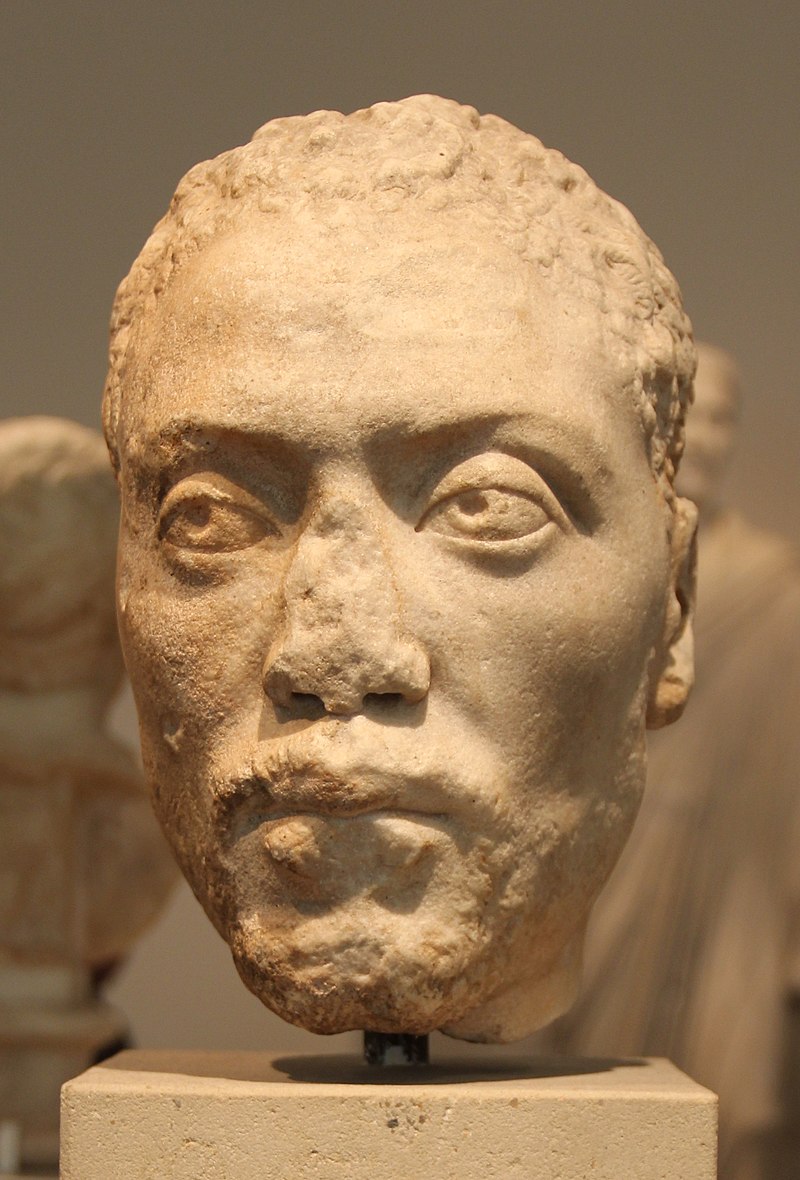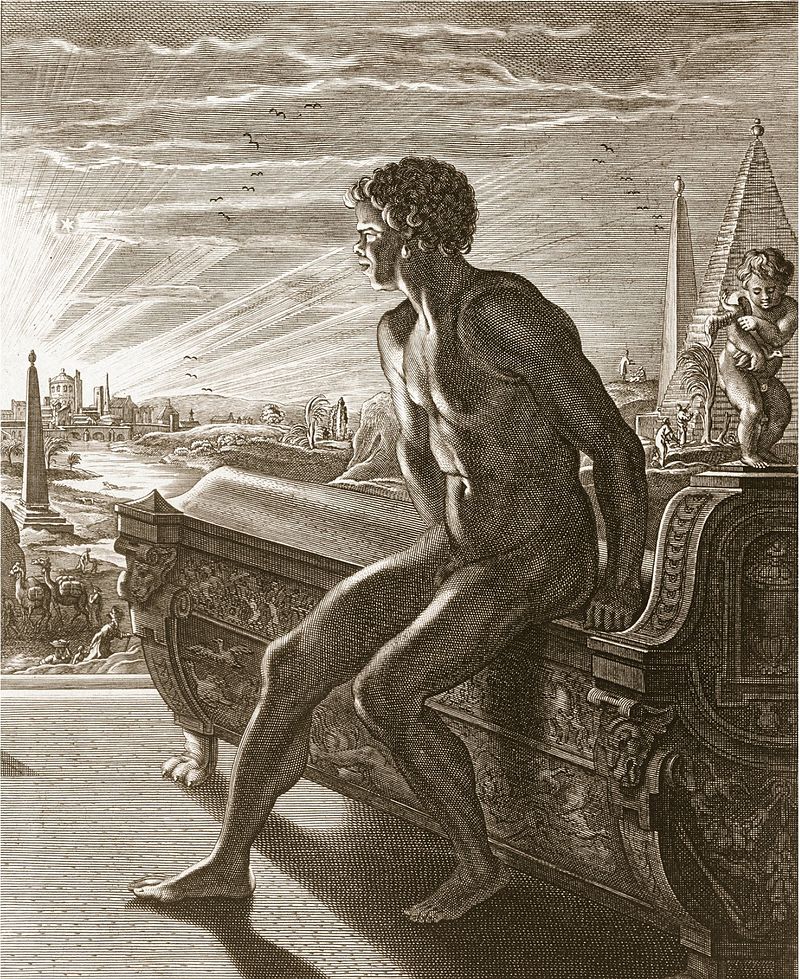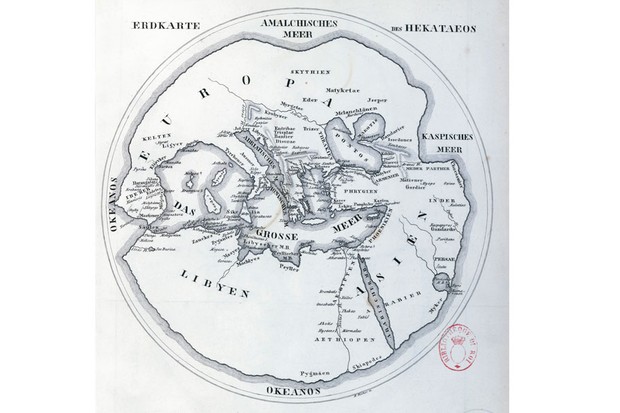In Greek mythology, Memnon was an Ethiopian king and son of Thithonus and Eos. As a warrior he was considered to be almost Achilles' equal in skill. During the Trojan War, he brought an army to Troy's defense and killed Antilochus during a fierce battle. The death of Memnon echoes that of hector, another defender of Troy whom Achilles also killed out of revenge for a fallen comrade, Patroclus.
After Memnon's death, Zeuswas moved by Eos' tears and granted him immortality. Memnon's death is related at length in the lost epic Aethiopis, composed after The Iliad circa the 7th century BE. Quintus of Smyrna records Memnon's death in Posthomerica. His death is also described in Philostratus' Imagines.
Dictys Cretensis, author of a pseudo-chronicle of the Trojan War, writes that "Memnon, the son of Tithonus and Aurora, arrived with a large army of Indians and Ethiopians, a truly remarkable army which consisted of thousands and thousands of men with various kinds of arms, and surpassed the hopes and prayers even of Priam.


After Memnon's death, Zeuswas moved by Eos' tears and granted him immortality. Memnon's death is related at length in the lost epic Aethiopis, composed after The Iliad circa the 7th century BE. Quintus of Smyrna records Memnon's death in Posthomerica. His death is also described in Philostratus' Imagines.
Dictys Cretensis, author of a pseudo-chronicle of the Trojan War, writes that "Memnon, the son of Tithonus and Aurora, arrived with a large army of Indians and Ethiopians, a truly remarkable army which consisted of thousands and thousands of men with various kinds of arms, and surpassed the hopes and prayers even of Priam.


You don't have permission to view the spoiler content.
Log in or register now.
Last edited:

